What’s the first thing that comes to mind when you hear the name Lizzie Borden? It’s the infamous axe murders and the catchy nursery rhyme that solidified her place in true crime history, right?
But there’s so much more to this tale than just a gruesome crime scene.
So, we’ve put together 25 fascinating, fun, interesting, and bizarre facts about Lizzie Borden. Some unexpected twists, some mysterious details, and a few curious anecdotes about her unusual life and legacy.
From her peculiar hobbies to the allegedly lingering hauntings at her former home, these facts about Lizzie Borden may give you a fresh perspective on one of America’s most notorious figures.
In this article:
The Infamous Axe Murders
There’s no denying that Lizzie Borden is best known for her association with one of the most famous unsolved murders in American history.
On August 4, 1892, Lizzie’s father (Andrew Borden) and her stepmother (Abby Borden) were brutally murdered in their home in Fall River, Massachusetts.
Both murders were particularly gruesome—with both victims suffering multiple hatchet blows.
Lizzie—then 32 years old—was the prime suspect from the very start. How so? Simple. Because of her inconsistent statements and her strained relationship with her parents.
Yet, despite the evidence (to be fair, most of it was circumstantial) and public opinion largely against her, Lizzie was acquitted in a highly publicized trial in 1893.
Even more shocking is how quickly the not-guilty verdict was reached after the jury deliberated for just over an hour—a quick decision that astounded many.
To this day, the true identity of the killer has never been conclusively determined.
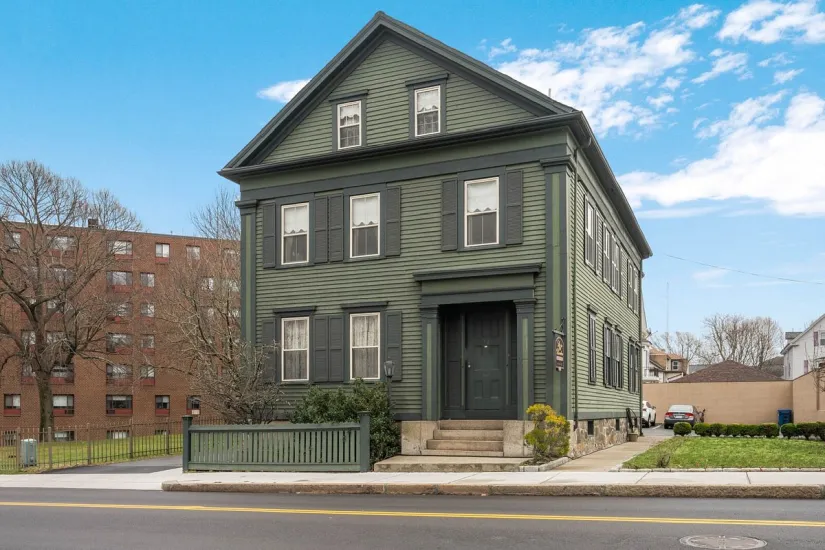
There Are Two ‘Borden Houses’ Today
The first house (where the murders of Andrew and Abby Borden took place) is located at 230 Second Street in Fall River, Massachusetts. This is the infamous “Borden House.”
Today, it operates as a bed-and-breakfast and museum. Here, visitors can take guided tours of the property, learn about the history of the murders, and even stay overnight in the rooms where the tragic events occurred.
Plus, those brave enough can even participate in paranormal investigations and ghost hunting, as the site is rumored to be haunted.
The second “Borden House” is the Maplecroft mansion where the two sisters moved after Lizzie Borden’s trial. This residence is located at 306 French Street, in a more upscale neighborhood in Fall River.
While Maplecroft has also garnered interest due to its association with Lizzie Borden, it is not as widely known or visited as the murder house.
More so, in recent years, Maplecroft has changed hands a few times. Some owners turned it into a private residence, while others tried to explore its potential as a historical site.
Lizzie Borden’s Post-Trial Life
Here’s an interesting fact about Lizzie Borden’s post-trial life: After acquittal, she remained in Fall River, but her life was far from ordinary.
Despite her legal exoneration, Lizzie faced social ostracism and was largely shunned by the community.
However, she wasn’t entirely hidden away—she retained a significant portion of her father’s wealth, allowing her to live comfortably and maintain a lifestyle that included some social engagements. Though, her circle of friends was notably smaller and more discreet.
Lizzie Borden’s later years were a mix of isolation and luxury, a curious blend of infamy and affluence until she died in 1927.
The Murder Case Had a Lasting Impact on American Pop Culture
It inspired numerous books, movies, TV shows, and even a nursery rhyme: “Lizzie Borden took an axe, gave her mother forty whacks…”
Despite its historical inaccuracies, the rhyme has cemented her place in folklore.
One of the most notable television adaptations is the 2014 movie “Lizzie Borden Took an Ax,” starring Christina Ricci.
The film was followed by a limited series, “The Lizzie Borden Chronicles,” which explored a fictionalized version of her life after the trial. Other TV series that referenced her are “The Simpsons” and “American Horror Story.”
Another example is the rock band Alice Cooper, who included a song titled “The Ballad of Lizzie Borden” on their album “Love It to Death.”
Facts About Lizzie Borden: She Enharited Most of the Family’s Fortune
Did you know that despite the accusations, Lizzie inherited a significant portion of her father’s estate after the trial?
Andrew Borden was a wealthy man. And upon his death, his estate was valued at around $300,000 (equivalent to several million dollars today).
After her acquittal, Lizzie (and her sister, Emma) inherited this fortune, allowing them to live comfortably for the rest of their lives.
She Changed Her Name After the Trial
A less-known fact about Lizzie Borden is that she attempted to distance herself from her infamous past by changing her name.
After the trial, she started going by “Lizbeth A. Borden” in an effort to lead a more private life.
The name change, however, did little to alter public perception. She was still widely recognized and continued to face public scrutiny and gossip.
Her Case Had a Big Influence on Modern Forensic Science
Did you know that the Borden case significantly influenced the field of forensic science, even though the techniques used at the time were rudimentary?
Everything from the police handling of the crime scene to the investigators’ collection of the evidence was criticized. Simply put, it was a mess from start to finish.
However, there is a positive aspect to all this. It has set the ground for future improvements in forensic investigations.
The Borden murders stressed the need for better crime scene management, meticulous evidence gathering, and more scientific approaches to solving crimes.
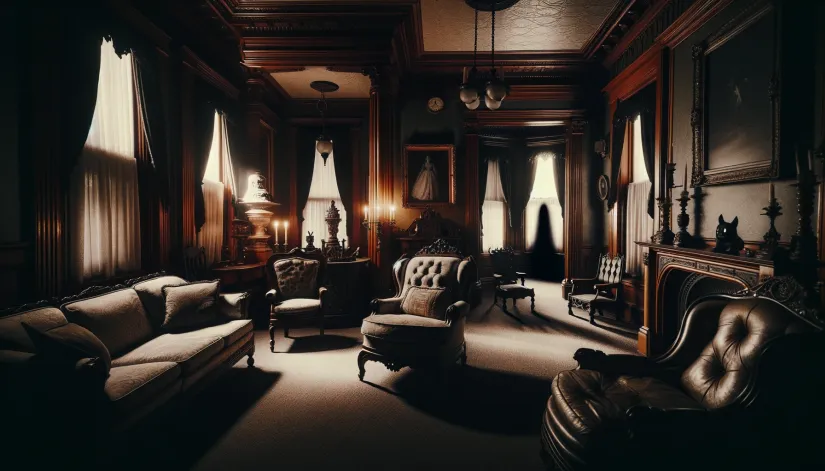
Maplecroft’s Modern-Day Sale
Maplecroft was sold (again) just recently. In 2018, the impressive Victorian mansion was put on the market and eventually sold for $849,900.
The new owners initially planned to turn it into a luxury bed-and-breakfast. Much like the original Borden home at 230 Second Street, which also operates as a bed-and-breakfast and museum.
However, as of the most recent updates, Maplecroft has been maintained more as a private residence rather than fully operating as a bed-and-breakfast.
There were plans and discussions about making it accessible to the public in some capacity—which would indeed be a significant draw for true crime tourism—but it hasn’t fully materialized in the same way as the original Borden house.
Lizzie Borden Was an Animal Lover
Don’t worry. Very few know this fact about Lizzie Borden. But it’s true.
Lizzie Borden was known to have a fondness for animals—a pretty sharp contrast with her notorious reputation.
She was particularly fond of dogs and supported the local animal rescue league. After her acquittal, when she moved to Maplecroft, Lizzie kept several pets, including dogs.
There are even some anecdotes and some historical mentions indicating she had a small aviary or kept birds at some point.
While specific records of her keeping birds are less concrete, the general consensus about her love for animals (especially dogs) is well-documented.
Her Trial Was One of the First American Criminal Cases to Become a Media Sensation
Newspapers from across the country sent reporters to cover the trial, and daily updates were eagerly consumed by the public.
The trial’s widespread coverage was partly due to the shocking nature of the crime and Lizzie’s social standing.
Still, it also marked a shift in how the media covered sensational crime stories, setting a precedent for future high-profile cases.
Her Acquittal Is Still Celebrated… Every Year
Every year on June 20, true crime enthusiasts and historians note the anniversary of Lizzie Borden’s acquittal. Events and exhibits are being held in Fall River to commemorate the trial’s significance.
This date marks the day in 1893 when the jury delivered their not guilty verdict—a debatable decision that has been argued ever since.

Emma Borden’s Departure
After living together for many years following the trial, Lizzie and Emma had a falling out in 1905, leading Emma to leave Maplecroft.
The reasons for their estrangement are not entirely clear.
However, some speculate it was due to disagreements over Lizzie’s lifestyle and the continued stigma surrounding the murders.
Emma moved to New Hampshire, but the sisters never reconciled. Emma lived a quiet life until her death in 1927, just nine days after Lizzie passed away.
Lizzie Borden Had an Affinity for Theater
Another interesting fact about Lizzie Borden is her less-known love for the theater. She frequently attended performances in Boston and New York.
After her trial, she often traveled to see plays and became acquainted with several actors of the time.
Yet, this passion for the arts was somewhat controversial (as it was seen as unbecoming for a woman of her social standing—especially one with her notorious background).
Lizzie’s frequent trips to the theater further fueled gossip and speculation among the locals of Fall River.
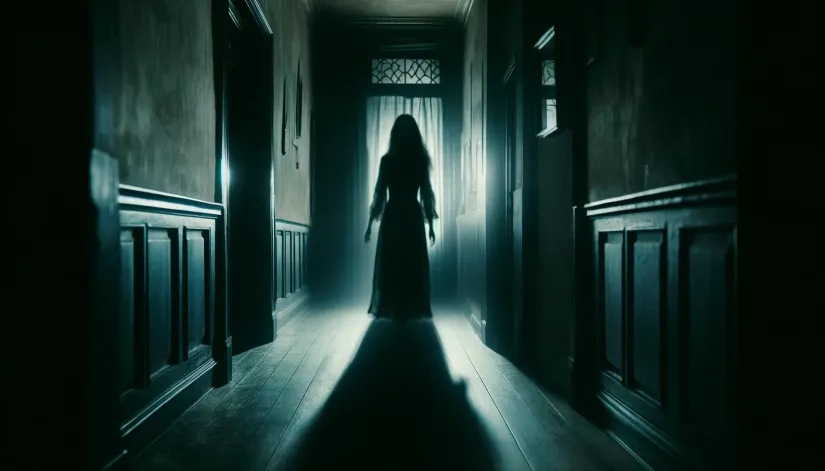
The Murder House is Allegedly Haunted
The Borden house is reputed to be haunted. Many guests and paranormal investigators have reported strange occurrences—such as unexplained noises, voices, and sightings of apparitions.
The most commonly reported ghostly figures are those of Andrew and Abby Borden, believed to be lingering in the home where they met their gruesome end.
A Mysterious Case of Unsolved Robbery
In 1891, a year before the murders, there was a mysterious burglary at the Borden home.
Jewelry and cash were stolen from a desk in the master bedroom, but the robbery was never solved. Intriguingly, it was suggested that the theft might have been an inside job, possibly orchestrated by Lizzie herself.
The incident has been later analyzed in connection with the murders.
Perhaps it hinted at underlying tensions and possible motives within the Borden household?
Who Was Nance O’Neil?
After her trial, Lizzie Borden developed a close friendship with the actress Nance O’Neil. The two women became very close, and there were even rumors of a romantic relationship, which was quite scandalous for the time.
Some even think that Nance’s influence was what brought Lizzie into the theatrical social circle.
Their friendship eventually ended. Likely due to the strain of public scrutiny and Emma’s disapproval of the relationship.
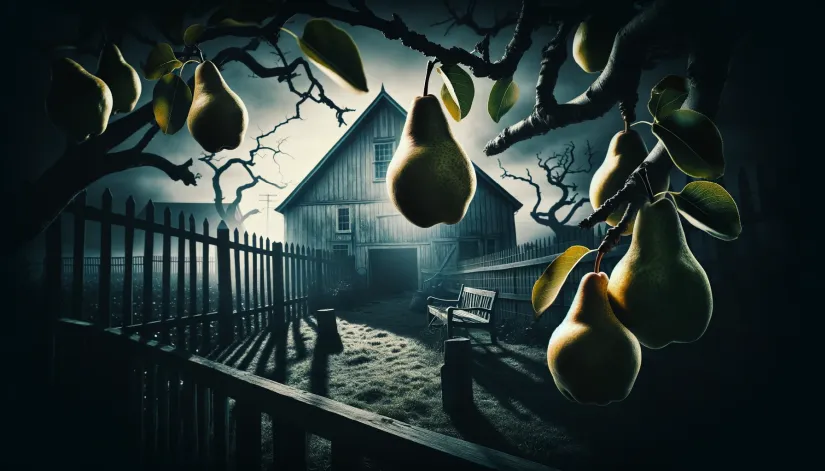
Facts About Lizzie Borden: The Pear Tree
One of the more curious facts about Lizzie Borden involves a seemingly innocent pear tree in the backyard of the Borden property.
On the morning of the infamous murders, Lizzie provided an alibi that she was in the barn looking for lead sinkers to go fishing and eating pears from the tree.
This detail might seem trivial at first. But it played a role in the murder investigation.
We now believe that Lizzie’s claim about the pear tree was meant to explain her whereabouts during the critical window of time when her father and stepmother were brutally murdered.
However, the image of her calmly eating pears while a horrific crime was unfolding inside the house adds an even more eerie twist to the narrative.
The Alleged Shoplifting Incident
In 1897, five years after her acquittal, Lizzie Borden was accused of shoplifting in Providence, Rhode Island.
The incident, though minor compared to her previous legal troubles. Plus, the exact details of what she was alleged to have stolen remain unclear.
Andrew Borden’s Frugality
Andrew Borden was known for his extreme frugality—despite his considerable wealth. The Borden house lacked indoor plumbing and electricity, luxuries that were becoming more common in affluent homes at the time.
This frugality was often cited as a source of tension within the family (particularly for Lizzie and Emma), who desired a more comfortable and modern lifestyle.
Andrew’s tightfistedness has been speculated as a contributing factor to the familial discord that may have played a role in the murders.
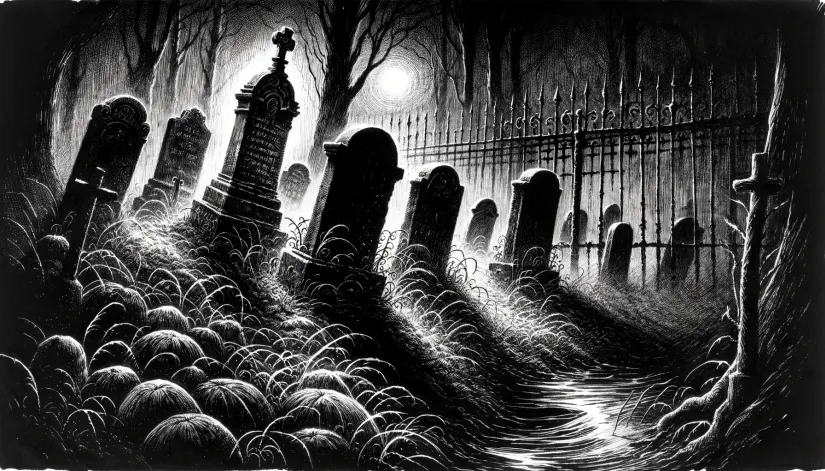
Lizzie Borden’s Burial
Lizzie Borden is buried in a simple, unadorned family plot in Oak Grove Cemetery in Fall River, Massachusetts, alongside her father, stepmother, and sister Emma.
Her grave is a frequent stop for visitors interested in the case, and the cemetery itself has become a site of historical significance.
Interestingly, Lizzie’s gravestone is marked with her birth name, “Lizzie A. Borden,” rather than the name she adopted later in life, “Lizbeth.”
The Burned Dress Incident
One intriguing fact about Lizzie Borden’s case is the incident involving a burned dress.
The day after the murders, Lizzie was seen burning a dress in the kitchen stove. She later claimed it was stained with paint, but the act of destroying a potential piece of evidence raised suspicions.
Some believe this dress could have been worn during the murders and that burning it was Lizzie’s way of getting rid of incriminating evidence.
She Was Known for Her Philanthropic Efforts Later in Life
She donated a significant sum of money to the Animal Rescue League of Fall River (an organization dedicated to the care and protection of animals).
In addition to her support for the Animal Rescue League, Lizzie also made contributions to other local charities and causes. She quietly funded various social and community initiatives, helping to support those in need in Fall River.
These acts of generosity included donations to local hospitals, libraries, and other community projects that aimed to improve the welfare of the town’s residents.
Theories of Abuse
One of the lesser-known theories about the Borden murders involves the possibility of abuse within the household.
Some historians and authors have speculated that Lizzie and her sister Emma may have suffered abuse at the hands of their father or stepmother.
However, these are mere speculations. No one was able to provide any concrete evidence to support these claims.

Halloween Costumes
Lizzie Borden’s notoriety is revived every Halloween as her character becomes a popular costume choice. Enthusiasts dress up as Lizzie (often carrying prop axes and wearing Victorian-style dresses) to embody the infamous figure.
The Fall River Historical Society
And one final interesting fact about Lizzie Borden: The Fall River Historical Society plays a significant role in preserving and presenting the history of the Borden case.
The society’s museum houses an extensive collection of Borden-related artifacts—including original trial documents, photographs, and personal items belonging to the Borden family.
The society also hosts lectures, exhibits, and events centered around the case, making it a key resource for anyone interested in learning more about Lizzie Borden and the broader historical context of her time.







